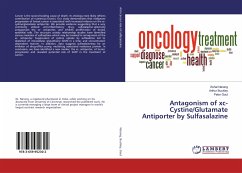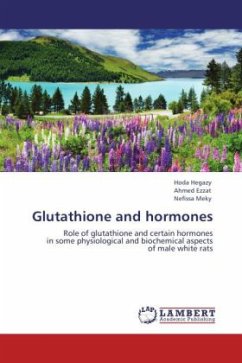Cancer is the second leading cause of death. Its etiology most likely reflects contribution of numerous factors. Our study demonstrates that malignant progression of breast cancer is associated with increased reliance on the xc- cystine/glutamate antiporter. We provide evidence suggesting that a very commonly utilized anti-inflammatory drug, sulfasalazine selectively antagonizes the xc- antiporter, and inhibits proliferation of breast epithelial cells. The structure activity relationship studies have identified various moieties of sulfasalzine which may be involved in antagonism of the xc- antiporter. Suppression of cystine uptake by sulfasalzine led to depletion of intracellular glutathione (GSH) in a time- and concentrated-dependent manner. In addition, data suggests sulfasalzinemay be an inhibitor of drug-efflux pump, multidrug associated resistance protein. In conclusion, we have identified a new marker, the xc- antiporter, of tumor progression and revealed potential role of SASP in the treatment of cancer.







